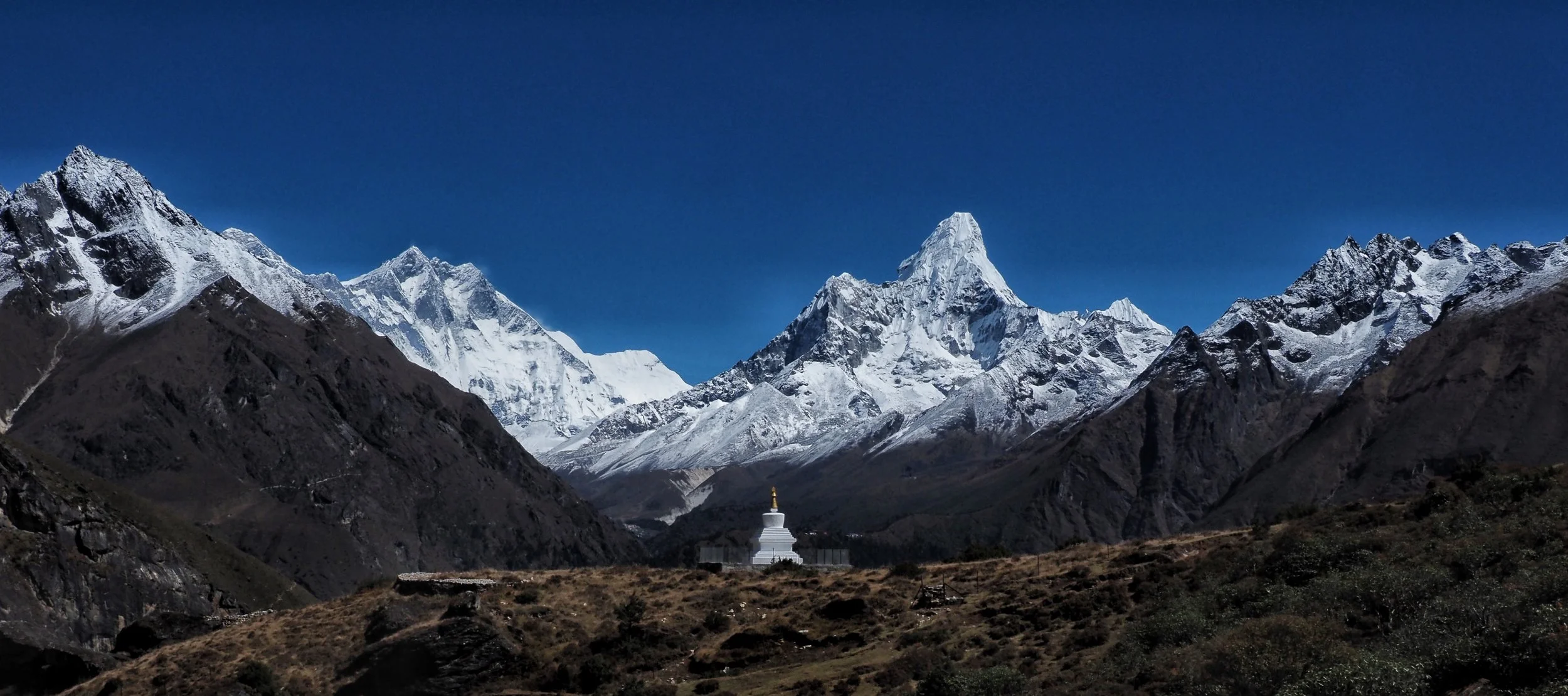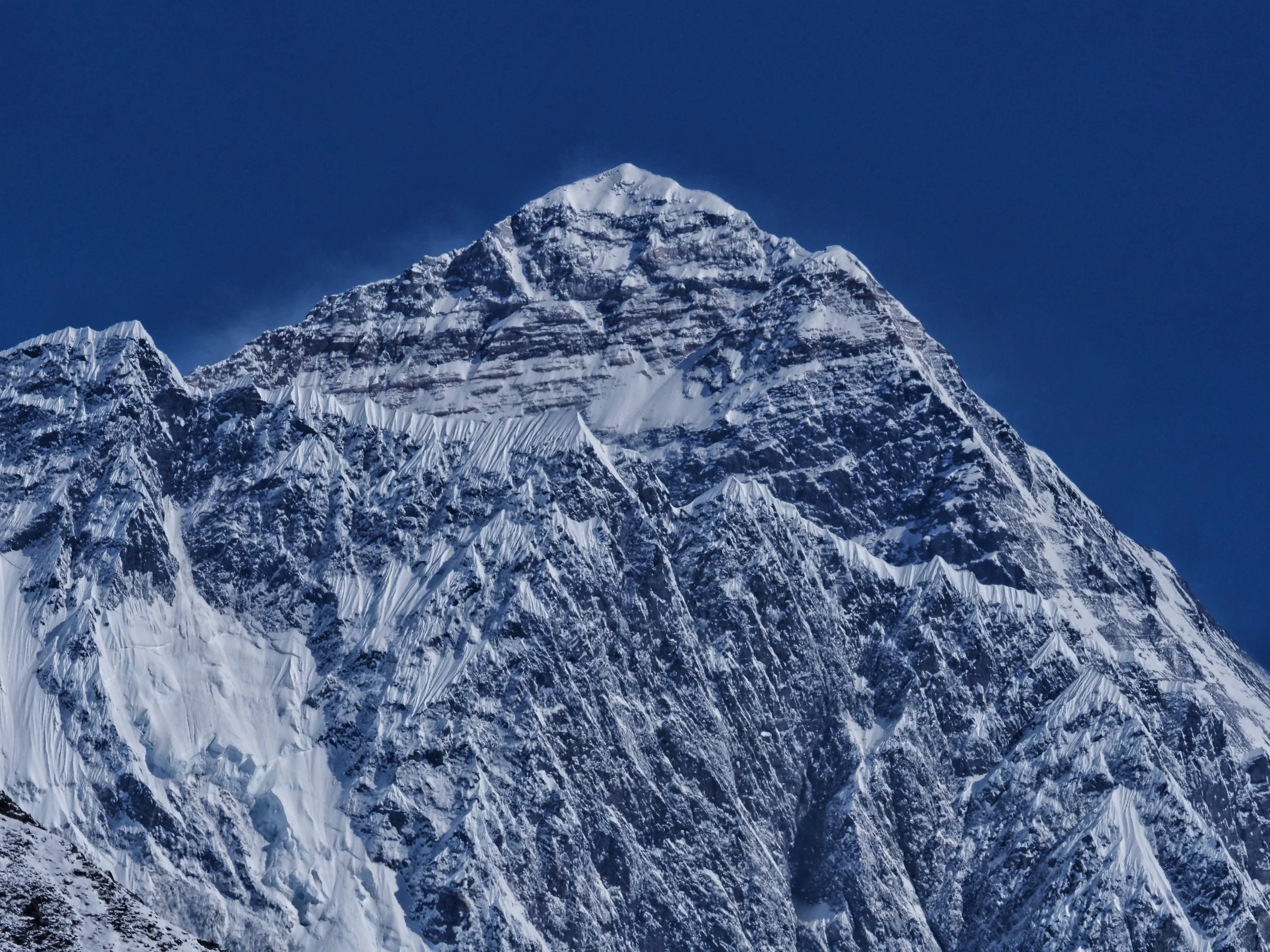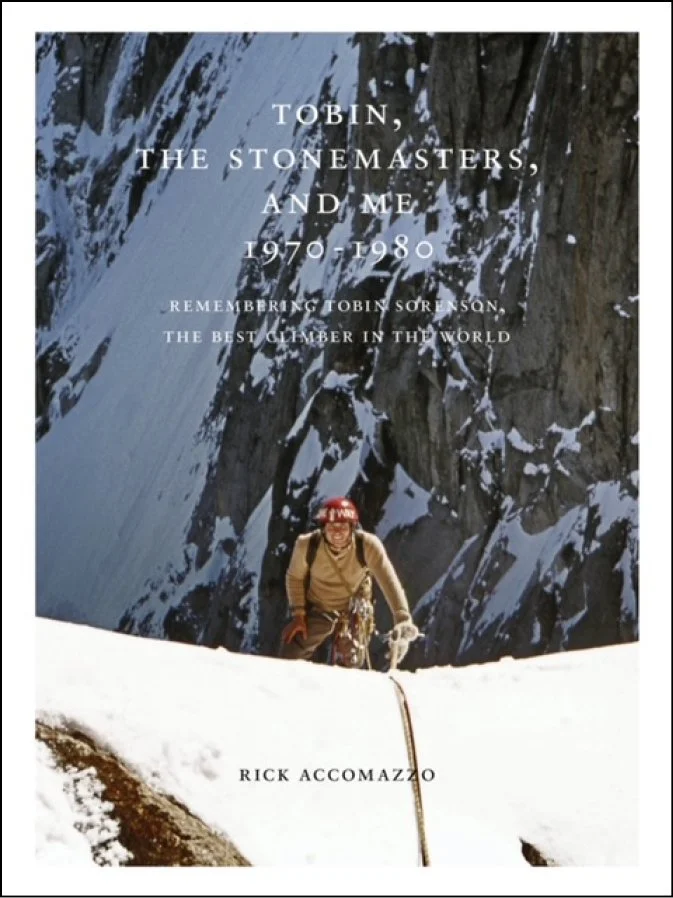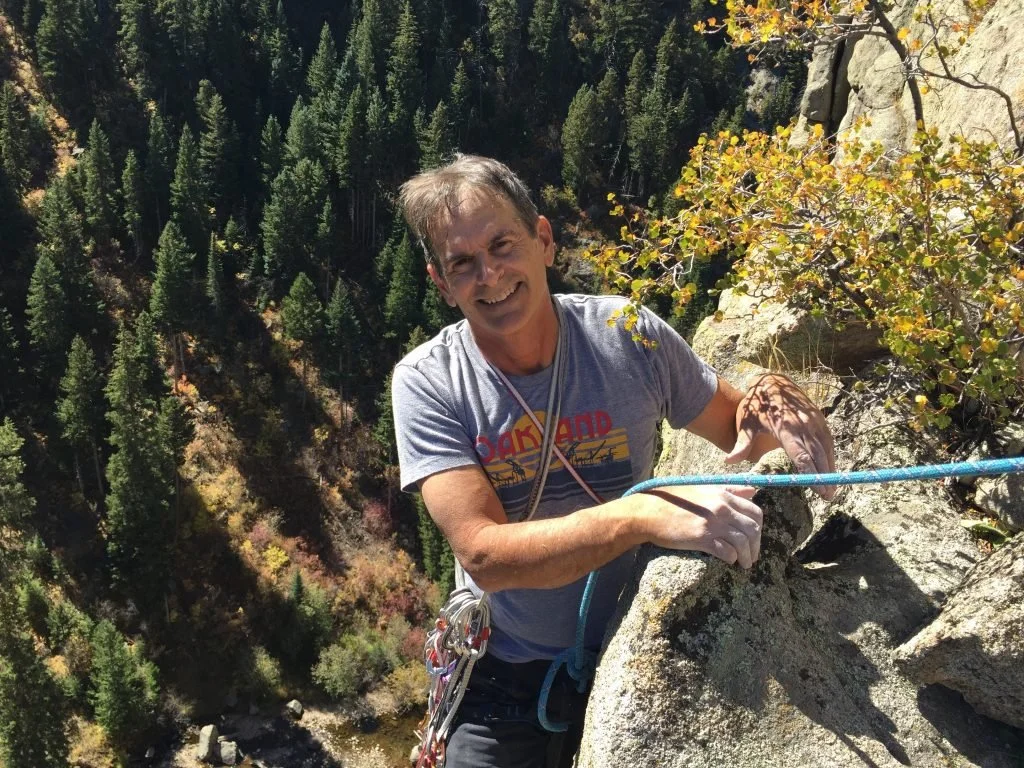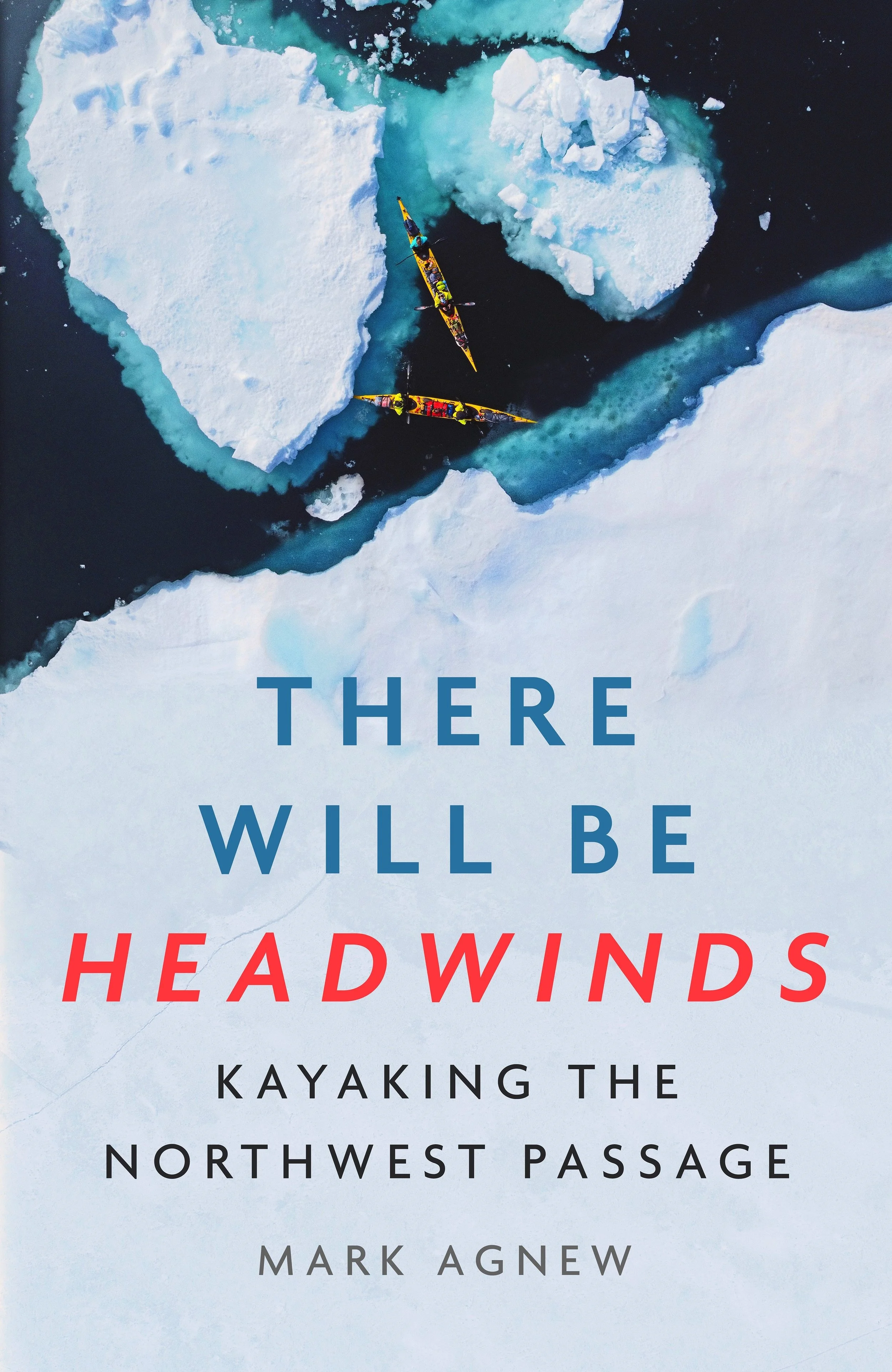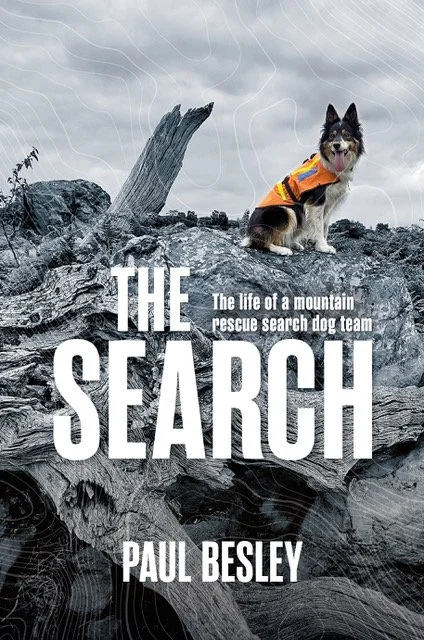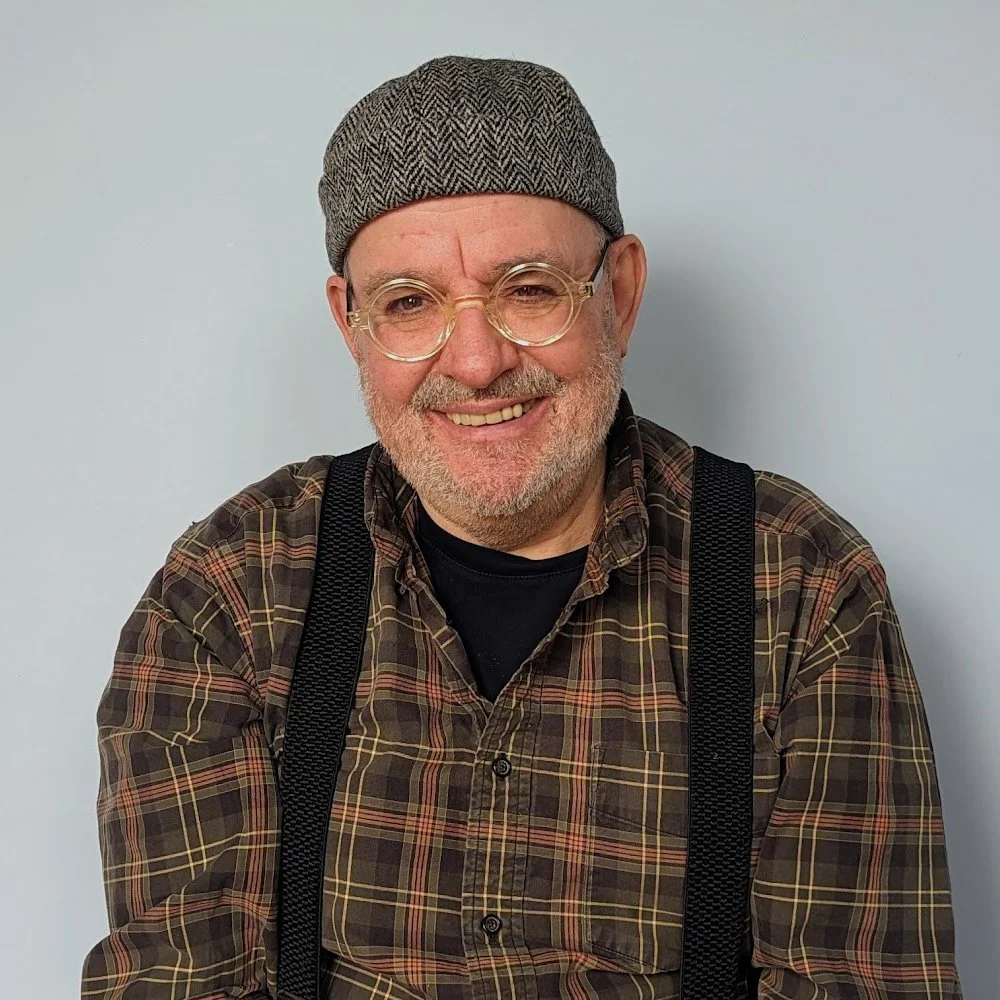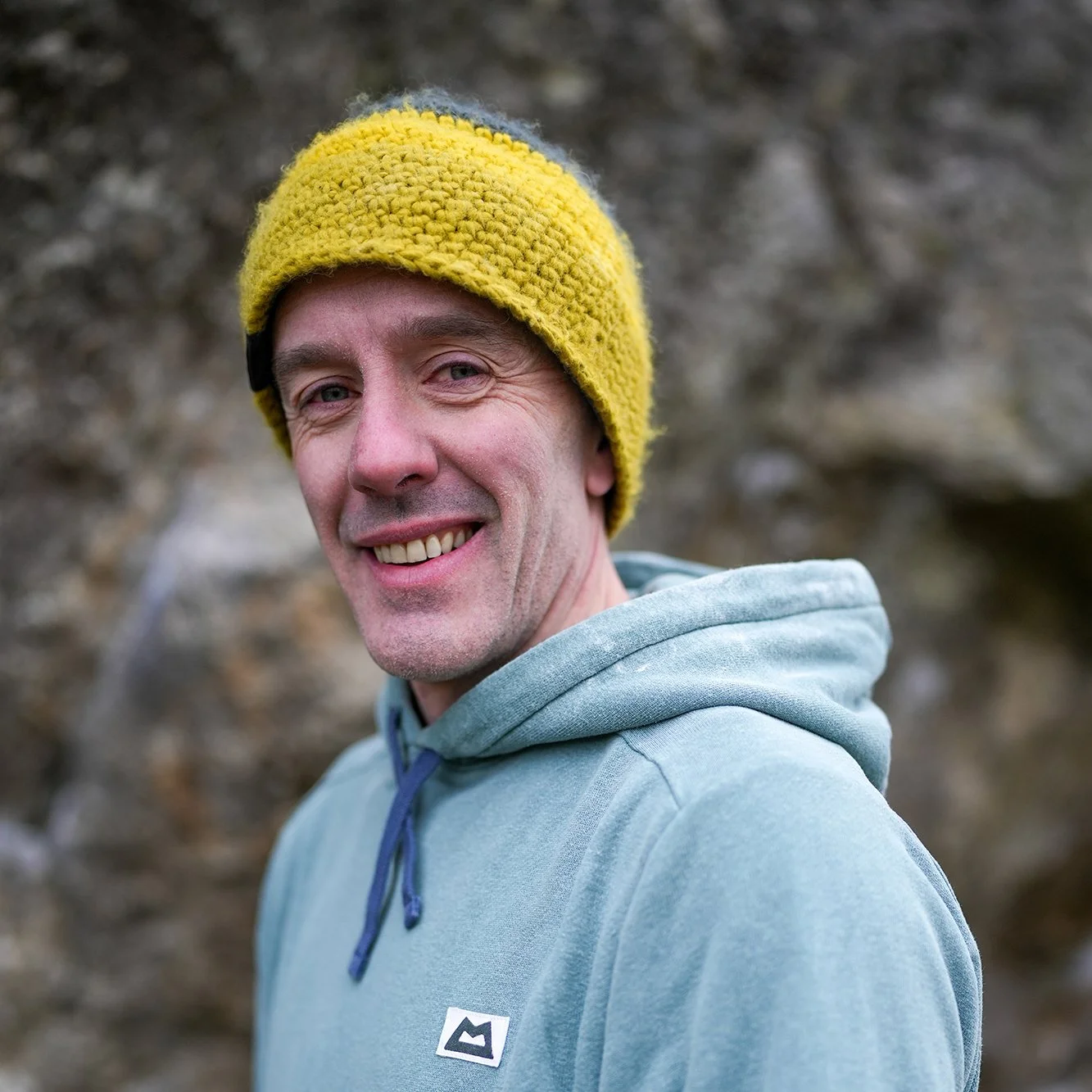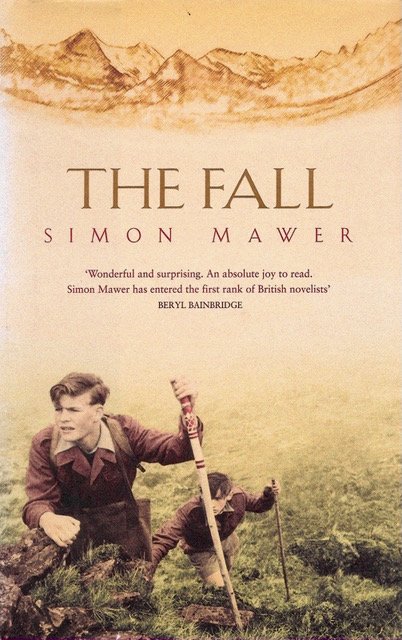In the late 1970s I was on the periphery of the British climbing world, drawn to its wild social scene. My eldest brother Mick was a climber; through him I’d got to know some of the main characters living in North Wales, where I often spent weekends. Back then, climbing and hard partying went hand in hand. After a Friday night in the pub, climbers – at that time mostly male - and their partners would pack into a small cottage for more booze, marijuana, magic mushrooms and hours of dancing. The following day, hangover cures consisted of greasy breakfasts and endless cups of tea before heading to a crag. Then back to the pub.
Through this scene I met a rising star in the mountaineering world, Alex Mcintyre,who was moving to Manchester and needed a place to live. He rented a room in my house, and as it was close to the airport it soon became a base for his climbing mates. Sometimes I had a whole Himalayan expedition dossing on my living room floor. I didn’t climb, but I was accepted into this tribe of free-spiritednomads. They dazzled me. They were like knights heading off to slay dragons in remote, high places, returning with stories of walking a fine line between life and death. I was drawn to their aura of risk, their reckless zest, their charged energy.
But I vowed not to get involved with a mountaineer. My brother had barely escaped with his life after falling into a crevasse in Patagonia. I’d befriended a Manchester climber, Nick Estcourt, and was devastated when I learned that hehad died on K2. I felt terrible for Nick’s wife, and I pitied all the women left at home while their men set off on long, dangerous expeditions.
Then, at a party in North Wales, I met Joe Tasker. Classic: eye contact across a crowded kitchen and over a table filled with beer and wine bottles. The next day he gave me a lift back to Manchester. He was the most interesting and engaging man I’d ever met. He had a sharp, enquiring mind, honed by the classical education he had received at a Jesuit seminary. He was witty and wry, a raconteur with many compelling stories. There was a strong mutual attraction.However, he was also a mountaineer who climbed some of the world’s highest mountains by their most difficult routes without supplementary oxygen. Initially I tried to resist him, but it didn’t take long for my vow to go out of the window.
I fell in love fast and deeply. He was more cautious. He made it clear from the beginning that I’d need to accept his long absences, and his preoccupations with work and expedition planning when he was home. But when he did turn his focus onto me, he was fully there, and full of tenderness. He fascinated me, and with him I felt calm and content in way I never had before.
In early May 1980, six weeks after the start of our love affair, he left to climb K2. This was his second attempt. Two years earlier, he’d been on the expedition that had claimed Nick Estcourt. We had our first row about this, after Joe told me he had not wanted to abandon the expedition after Nick died but was outvoted by other team members. When I questioned him on why he would carry on after such a tragedy, he became angry. Of course this should have told me everything, but our time together was limited, so I quickly made up with him and brushed it aside.
Our first parting was a bewildered one. It would be three months at least before we would see each other again, and deep down I acknowledged the possibility of him not returning. During the previous few days he had withdrawn from me emotionally, and, with no understanding back then of how he prepared himself for an expedition, I took his detachment personally. I clung to him and my defences fell away.
“Will we be together when you get back?”
He paused before answering and chewed his lip.
“Let’s see what happens,” he replied.
I cried all the way back to Manchester.
Then started the first of the long and uncertain periods I was to become more used to, when I was the person I once pitied: a climber’s girlfriend, left at home, watching for mail that took weeks to arrive.
‘Emotionally I am in a bit of a limbo,’ he wrote in his first letter. “I know it must be awful for you, and I can see that my whole behaviour must seem weird. On a trip like this, when all outside stimulus is removed, I find I am very detached. If I do think about what I am doing, I am puzzled and bewildered but thinking about things that are so far away in space and time can be a torture, so I just drift.’
He wrote regularly, sounding off his frustrations over the progress of the expedition and saying little in the way of romance, but at least reassuring me that he hoped I would be there when he returned.
At that time I was teaching at a Manchester reception centre for Vietnamese refugees. As lessons were held year-round, I had the luxurious perk of choosing when to take my holidays. I decided that travelling for part of the time Joe was away would help me to cope with the separation. A few weeks before he was due back I flew to the States and drove cross country with some friends, which helped take my mind off the worry. But on my return a letter arrived from Joe which brought me horribly back to reality. It had been written at K2 base camp and dated 17-08-80; in his confusion he had been a month ahead of himself.
‘I don’t quite know how to start this letter,’ he wrote. ‘It’s not any romantic, emotional reason, it’s just that I feel plain and simply wiped out. I couldn’t have written yesterday and as it is I have to suppress a lot and not look back at the events of the past few days directly in order to get by.
Yesterday, Pete, Dick and I arrived back here after what will probably, I hope, be one of the most profound experiences ever for us. It affects us all differently, but I know that I haven’t come to terms with its implications and last night I went to sleep twitching at the slightest rustle of the tent, or rattle of a stone outside, imagining rocks plying away from ice, and slipping into dreams of hospital wards and personal Apocalypses.
On the night of July 11, Pete, Dick and I were hit twice, at 26,500 ft, by avalanches. We were lucky to be alive, but I think it was the next three days struggling to survive that induced this state of shock. The weather, in spite of forecasts, was bad, and having decided to retreat, though only about six hours from the summit, we found our retreat barred by thigh deep, avalanche prone slopes. We hadn’t the food or fuel to stay put so we had to try to get down. For three days, growing more and more exhausted, we struggled down in appalling weather – the mountain was totally in control.
When we stumbled into Basecamp yesterday some American friends were there who had joined our Base Camp, and so was George Bettembourg from our Kanch expedition, and I was glad, as we stumbled into this welcome committee (they had followed our painful progress by walkie-talkie without being able to help) of my reflective sunglasses, so no one could see the tears of relief and gratitude in my eyes.’
The blue aerogram had been lying on my hallway carpet when I came home from work. I had ripped it open on the way through to the living room. Standing stock still by the table, I rested a steadying hand on the brown chenille cloth, trembling as I read.
“Avalanches.”
The word brought a chill of horror. As a child I had imagined an avalanche to be a rush of hissing snow that swept its captive over some unseen edge. Now I knew a little more. I knew that the snow was more often like wet concrete, and held huge blocks of ice, that death was usually by suffocation, and that it was a terror for those who gambled in the mountains. Nick Estcourt had pitted himself against K2 and lost. An avalanche took him away as he carried supplies up to where Joe and Pete were camped. He crossed a slope at the wrong time; he decided to take the lead only minutes before; it could so easily have been someone else or no one at all. The stakes were high. And those at home, all the families and the lovers, they had their futures hanging in the balance too. Ah, but Joe had not been claimed this time – he was alive.
There was nothing, no previous experience or foreknowledge, to prepare me for his last paragraph.
‘We decided on the way down not to discuss going back up until we reached Base Camp. We should all be home for one reason or another and our visas run out on July 31st, but we were so close we will probably have one more go. We will be all right this time. Tara for now. Love, Joe.’
One more go? It was the beginning of August; Dick’s baby was almost due to be born; how could they even consider going back up the mountain after escaping death so narrowly? The fact that he had written from Base Camp and that, before the closing sentences, I presumed he was out of danger, had allowed me to fully open to the reality of the danger he faced, moment to moment, while climbing K2. But the letter was two and a half weeks old. It was too late to close my channels of imagination; all the possibilities generated by the slip of paper in my hand took hold. There was no way of knowing if Joe or any of the others were dead or alive.
Desperation and anger hit me in turn. I paced through the house clutching the letter, re- reading it until I almost knew the words by heart, asking myself why, why would they go back up the mountain and risk so much, why did they climb at all, why had my life led me to this moment of rising, anchorless panic? It was hard to know what to do, who to turn to. The need to share the worry grew strong, but my neighbour registered incomprehension at what I told her. Alex was away on an expedition, so I phoned a couple of other climbers.
“Nothing to be done, love,” said the one I reached. “But no news is good news.”
For nine days I hung onto that well used cliched, until Joe rang me from Islamabad.
“We didn’t make it on the second try, but we’re all fine. I’ll be home on the twelfth.”
I was wordless on the end of the telephone, aware of nothing except overwhelming relief.
***
Maria Coffey has written about her relationship with Joe Tasker in four books: Fragile Edge, Where The Mountain Casts Its Shadow, Explorers of the Infinite and her recent memoir, Instead.
Maria is Chair of the Boardman Tasker Charitable Trust.









